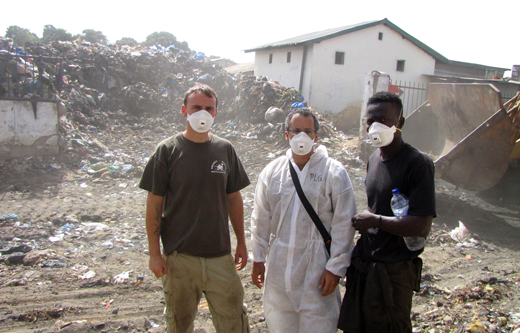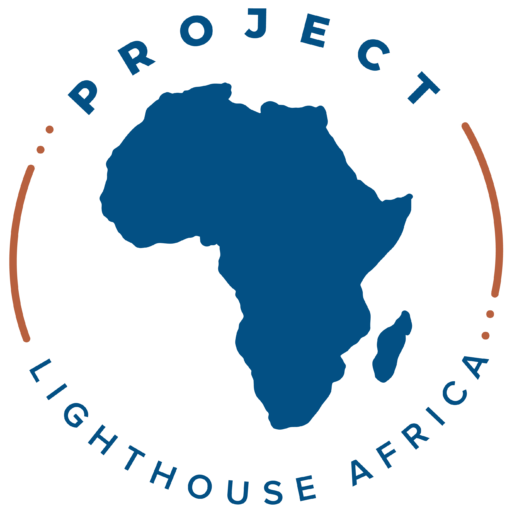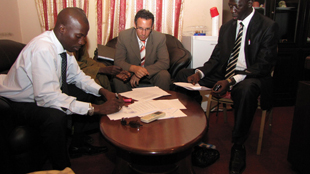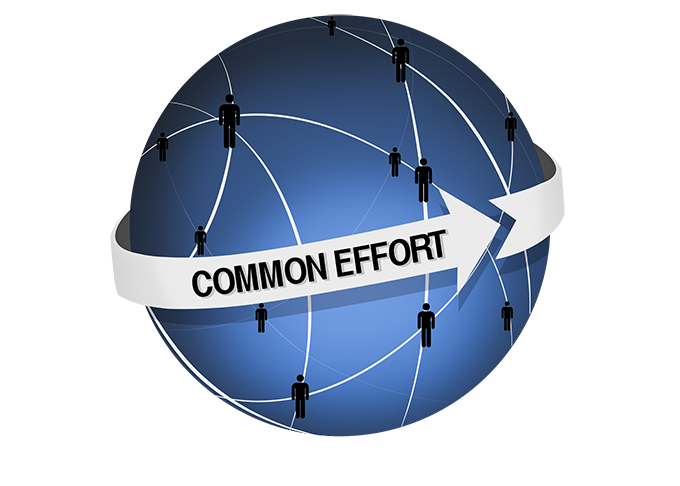Background
In common with many African countries the Gambia has a solid waste problem, which not only threatens the environment of this West African country, but also harms the health of its people.The situation can only be described as dramatic.
While government agencies such as the National Environmental Agency (NEA) recognize the precarious situation, their hands are tied, as there is no adequate waste disposal strategy. For that the municipal administrations – who are responsible for waste management – have only very small financial and material resources at their disposal – which is reflected among other things in a desolate fleet of public garbage disposal and poor working conditions of sanitation workers.
The result is that public institutions such as urban community markets almost sink into in the trash. Crucially, these markets are mostly located in the center of dwelling zones, whereby the waste problem piles up on the doorstep of the residents – with all the associated harmful consequences. In April Project Lighthouse Gambia (PLG) has disposed of some 600 tons of garbage under the lead of our partner NGO Dresden Banjul Organisation (DBO) , which piled up in the dwelling zone of Wellingara.
An interview with Aaron Leng from DBO about the joint waste clearing operation with Dresden Banjul Organisation, Project Lighthouse Gambia and Brikama Area Council at Wellingara/Gambia end of April is available on our YouTube channel. The interview is in German language. Selective disposal operations had been carried out before in Serekunda and Sukuta.
The cost of the previous waste clearing operations, around 20,000 Euros (1,000,000 GMD), had been covered by Dresden Banjul Organisation.
Due to the successful waste clearing operations the NEA has asked for a regular support by DBO and PLG. In a joint project PLG and DBO want to implement a pilot project in three selected communities to point out a possible strategy to improve the waste situation in the respective areas. At the same time a systematic separation of organic and other waste shall be implemented for the first time in Gambia.

Concept
The concept plans to locate two 5.5m³ bucket containers – one for organic waste and one for other waste – at the public markets in three selected communities. The containers will be under constant supervision to ensure proper filling. The payment of the container attendee is carried out as a performance-based bonus system. Depending on the amount of waste the containers will be emptied every day or every other day.
In an experimental composting plant at Bakoteh dumpsite, the organic waste shall be converted into bio fertiliser. For sustainable funding of the project four additional containers will be located at hotels with costs for disposal of food and organic waste.
Since nearly one decade the charitable association Project Lighthouse Africa e.V., Project Lighthouse Gambia and collaborating experts have been working on the question of how to improve the waste management system in developing countries, to use the potential energy of waste and to turn a fundamental problem of the developing countries into an opportunity.
 Project Lighthouse Africa e.V.
Project Lighthouse Africa e.V.

